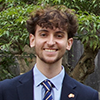Circulation and dissemination of populist ideas of law and justice across languages, communities and genres (CIRCLE)
Populist ideas that pursue a nationalistic, anti-immigration, anti-human rights, anti-institutional, anti-elitist, anti-urban, and anti-woke agenda are circulated among populist political leaders, in the public debate, across tabloid and mainstream media, and even among well-established parties in the middle of the political spectrum in many European countries, including Denmark.

The purpose of CIRCLE is to investigate the rhetoric of populism and to identify the linguistic representation of populist ideas of law and justice across languages, communities, and genres. To that end, we ask, what ensures the effectiveness of populist ideas; does the language of populism circulate across national legal systems; how do legal actors react rhetorically to populist ideas; and is it possible to create a non-populist popular language in defense of the liberal democratic order based on the rule of law?
To answer those questions, CIRCLE applies an interdisciplinary methodology, based on Critical Discourse Analysis, corpus linguistics, rhetoric, and translation theory in order to inform socio-legal and political science research on populism and the legitimacy of international law and courts.
The PI of CIRCLE is Associate Professor Anne Lise Kjær, iCourts. CIRCLE collaborates with a team of international and national researchers.
Our investigation is conducted in four overlapping steps, each representing a work package:
Work package 1: The Rhetoric of Populist Ideas
In a first step, the PI and PhD - supported by a student assistant and in collaboration with national expert Katrine Meldgaard Kjær - will collect and code Danish media and political texts on human rights. Denmark is selected as the country of primary investigation due to the widespread populist sentiment across the political spectrum.
Work package 2: The Circulation of Populist Ideas
In a second step, not part of the PhD thesis, the PI with international collaborators will compare populist phrases across languages and trace their circulation and dissemination. The selected countries represent nation states in which European law is criticized publicly to varying degrees reflecting their different geo-political situation (Poland, the UK, Italy, Spain, and Germany).
Work package 3: The Impact of Populist Ideas
In a third step, the PhD will turn to legislative and judicial discourse to ascertain whether and how legal texts of the human rights system at national and European levels have been affected by populist ideas.
Work package 4: The Response to Populist Ideas
In a final conclusive step, the PI, in cooperation with international collaborators, will draft a grammar of a non-populist, plain and simple language of human rights that may be used in defense of the international legal order based on liberal democracy and the rule of law.
27 November 2025: Meeting of CIRCLE's internal and external participants.
2-3 September 2024: Workshop on Populism in Parliamentary Debates.
5 April 2024: Roundtable. Pernille Kloster’s presentation of her PhD project “Populist Rhetoric of Law and Justice and its Impact on Legislative and Judicial discourse”.

21 September 2023: Roundtable discussion on Populist ideas of law and justice in media representations, at the International Language and Law Association, General Conference, University of Krakow.
Researchers
Internal researchers
| Name | Title | |
|---|---|---|
| Kjær, Anne Lise | Associate Professor |
|
| Kloster, Pernille | PhD Fellow |
|
External researchers
Ruth Breeze
 Ruth Breeze is Full Professor in the Institute for Culture and Society at the University of Navarra, Spain, specialising in computational linguistics and discourse analysis.
Ruth Breeze is Full Professor in the Institute for Culture and Society at the University of Navarra, Spain, specialising in computational linguistics and discourse analysis.
She is Principal Investigator of the research group ‘Public discourse’, which focuses on the applications of linguistics and discourse analysis to the social problems of our time. Its researchers apply their knowledge of different languages and their theoretical mastery of sociolinguistics, cognitive linguistics, corpus linguistics, pragmatics, discourse analysis, multimodality and narrative analysis to deconstruct current social discourses in politics, business, media and social media. This approach has allowed members of the research group to shed light on social issues as diverse as Arab migration in Navarra, media literacy, digital misogyny and hate speech.
Stanislaw Gozdz-Roszkowski
 Stanisław Gozdz-Roszkowski is Associate Professor and Head of the Department of Specialised Languages and Intercultural Communication, University of Lodz (Poland). His research focuses on the relationship between language, argumentation and rhetoric.
Stanisław Gozdz-Roszkowski is Associate Professor and Head of the Department of Specialised Languages and Intercultural Communication, University of Lodz (Poland). His research focuses on the relationship between language, argumentation and rhetoric.
He is now finalizing a project on the role of evaluative language and stance-taking in judicial discourse (funded by Poland’s National Research Centre (NCN)). He has published widely in the area of legal argumentation, legal phraseology, corpus linguistics and communicating evaluative meanings in judicial opinions.
His most recent book publications include Language and Legal Judgments Evaluation and Argument in Judicial Discourse (2024), Law, Language and the Courtroom. Legal Linguistics and the Discourse of Judges (2022) and Phraseology in Legal and Institutional Settings. A corpus-based interdisciplinary perspective (2019), all published with Routledge.
Gianluca Pontrandolfo
 Gianluca Pontrandolfo is Associate Professor at the University of Trieste at IUSLIT, Department of Legal Language, Interpreting and Translation Studies, where he is also Director of the Master programme in Legal Translation. He is currently PI of the research project “Rights and Prejudice: Legal Implications of Gendered Discourses in International and European Courts” (GenDJus) (funded by the Italian Ministry of University and Research (MUR) and the EU (Next Generation EU)). The aim of this interdisciplinary project is to investigate subtle forms of discrimination, which can derive from prejudices, stereotypical views and biased attitudes in judicial discourse. More specifically, it explores the way judges argue about gender and sexual minorities’ issues and how their discourses might impact on the enjoyment, restriction or denial of specific human rights. His research activity mainly focuses on legal linguistics and translation, textual analysis of specialised discursive genres applied to translation, corpus-assisted (critical) discourse analysis from a sociolinguistic perspective, and more recently, from a gender studies perspective. Many of his works adopt corpus linguistics as a privileged research methodology for empirical contrastive (Spanish, Italian, English) analyses.
Gianluca Pontrandolfo is Associate Professor at the University of Trieste at IUSLIT, Department of Legal Language, Interpreting and Translation Studies, where he is also Director of the Master programme in Legal Translation. He is currently PI of the research project “Rights and Prejudice: Legal Implications of Gendered Discourses in International and European Courts” (GenDJus) (funded by the Italian Ministry of University and Research (MUR) and the EU (Next Generation EU)). The aim of this interdisciplinary project is to investigate subtle forms of discrimination, which can derive from prejudices, stereotypical views and biased attitudes in judicial discourse. More specifically, it explores the way judges argue about gender and sexual minorities’ issues and how their discourses might impact on the enjoyment, restriction or denial of specific human rights. His research activity mainly focuses on legal linguistics and translation, textual analysis of specialised discursive genres applied to translation, corpus-assisted (critical) discourse analysis from a sociolinguistic perspective, and more recently, from a gender studies perspective. Many of his works adopt corpus linguistics as a privileged research methodology for empirical contrastive (Spanish, Italian, English) analyses.
Paolo Martorano
 Paolo Martorano is a PhD student in Theory of Language and Linguistic Education at Sapienza University of Rome at the Department of Letters and Modern Cultures, Faculty of Humanities and Philosophy. His PhD research focuses on plurilingual education in Europe, carrying out an integrated and comparative investigation of policies, practices, and school corpora.
Paolo Martorano is a PhD student in Theory of Language and Linguistic Education at Sapienza University of Rome at the Department of Letters and Modern Cultures, Faculty of Humanities and Philosophy. His PhD research focuses on plurilingual education in Europe, carrying out an integrated and comparative investigation of policies, practices, and school corpora.
His MA thesis examined the lexicon, collocations, word combinations, and other phenomena in the discourses of Italian and Spanish populist political parties held for the European elections of 2024, adopting a corpus-driven approach.
Dr. Friedemann Vogel
 Friedemann Vogel is Full Professor of sociolinguistics and discourse studies at the University of Siegen, Germany.
Friedemann Vogel is Full Professor of sociolinguistics and discourse studies at the University of Siegen, Germany.
As a linguist and a specialist in media and cultural studies, he is interested in the relationship between language, knowledge and power. Since his university studies, he has been dealing with research questions that can be clarified only by applying an interdisciplinary methodology, such as: How does our linguistically founded legal system work? How is collective knowledge shaped and manipulated by the media? In which communicative practices are social groups and their access to power constituted? What role does the computer play as a medium of interaction or as a methodical tool to support linguistic and cultural studies research?
Project student
 Julian Østergaard Hansen is enrolled at the University of Copenhagen, studying a master’s degree in political science with a specialisation in European politics. He is a research assistant at iCourts, assisting on the CIRLCE project.
Julian Østergaard Hansen is enrolled at the University of Copenhagen, studying a master’s degree in political science with a specialisation in European politics. He is a research assistant at iCourts, assisting on the CIRLCE project.
Funding
Circulation and dissemination of populist ideas of law and justice across languages, communities, and genres: The case of the European Court of Human Rights (CIRCLE) has received a three year funding from Independent Research Fund Denmark.
Project: Circulation and dissemination of populist ideas of law and justice across languages, communities and genres (CIRCLE)
(Application number: 122802)
Period: September 2023 – December 2026
Contact
 PI, Associate Professor, Faculty of Law, University of Copenhagen
PI, Associate Professor, Faculty of Law, University of Copenhagen
Anne Lise Kjær
E-mail: anne.lise.kjer@jur.ku.dk
Phone: +45 35 32 31 73

